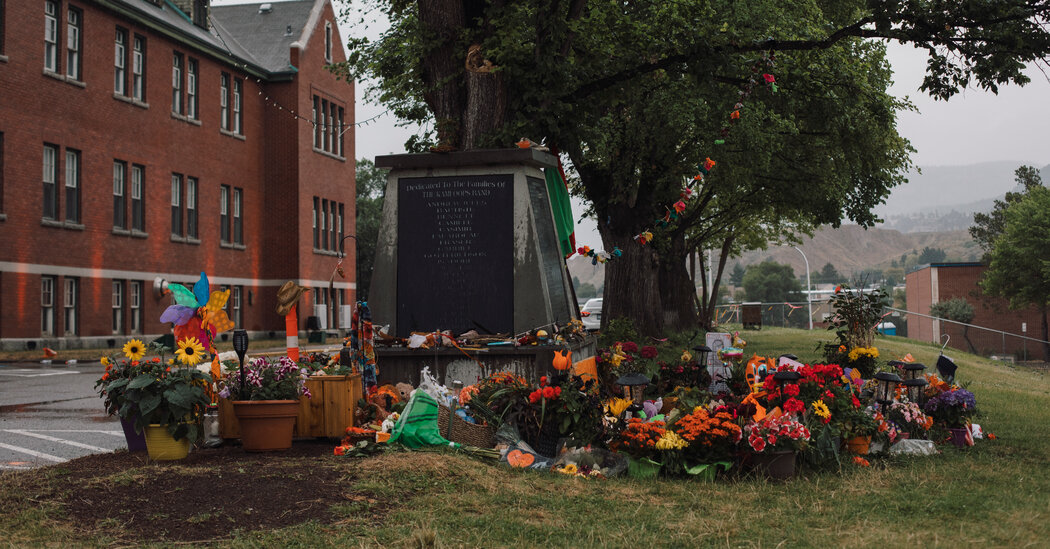
The delegates also asked Francis to revoke a 1493 papal bull issued by Pope Alexander VI that had given Spain authority over the newly discovered lands of the Americas, allowing the Spanish to colonize and enslave the Indigenous peoples and convert them to Catholicism. The papal bull, which informed the “doctrine of discovery,” was “used for centuries to expropriate Indigenous lands and facilitate their transfer to colonizing or dominating nations,” according to the United Nations.
Indigenous groups in Canada say that while the theories of racial superiority that underlie the doctrine have long been discredited, it continued to surface in legal disputes over land until 2014. The Supreme Court of Canada ruled that year, without naming the papal bull, that the idea that no one owned land until it was claimed by Europeans “never applied in Canada.”
Bishop William T. McGrattan, the vice president of the Canadian Conference of Bishops, said Friday afternoon that Canadian bishops had refuted the doctrine, and in 2016 offered a pastoral letter denouncing it. Discussions were ongoing about the issue among various bishops conferences around the world, he added, and the Vatican was “studying those particular responses.”
Phil Fontaine, another delegate and former residential-school student who, as national chief of the Assembly of the First Nations, first traveled to the Vatican in 2009 to ask for an apology from Pope Benedict XVI, said this visit had been decidedly different. There appeared to be real commitment on the part of Pope Francis “to fix things to better the lives of our people,” he said.
The apology won’t heal every survivor, but it will open a door, said Ms. Caron. “Survivors are at different stages of the healing journey,” she said. “Some turned away from the church and they say they don’t need an apology to heal, but for others, it was very much necessary.”
“It changes the direction we continue to move forward,” Ms. Caron added.
The church softened its stance on apologizing last year, after three Indigenous groups announced that ground-penetrating radar had discovered signs of many hundreds of unmarked graves containing human remains, mostly those of children.
Chief Antoine, the Dene national chief, said that the Indigenous people of Canada were looking forward to the pope’s visit and that he hoped they would be “active partners” in planning it and in determining the sites Francis would travel to. “Why? Because it’s our home,” he said. “And our family needs to be involved in it.”
Elisabetta Povoledo reported from Vatican City, and Ian Austen from Ottawa.




